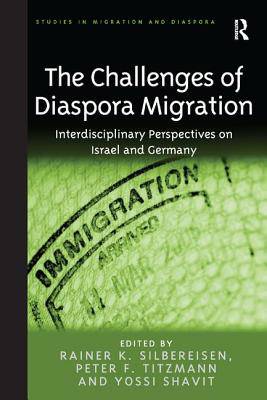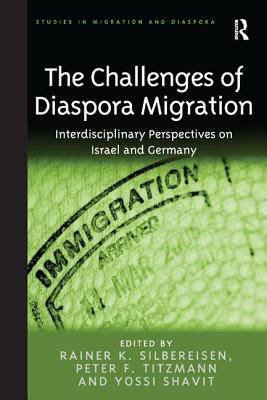
Je cadeautjes zeker op tijd in huis hebben voor de feestdagen? Kom langs in onze winkels en vind het perfecte geschenk!
- Afhalen na 1 uur in een winkel met voorraad
- Gratis thuislevering in België vanaf € 30
- Ruim aanbod met 7 miljoen producten
Je cadeautjes zeker op tijd in huis hebben voor de feestdagen? Kom langs in onze winkels en vind het perfecte geschenk!
- Afhalen na 1 uur in een winkel met voorraad
- Gratis thuislevering in België vanaf € 30
- Ruim aanbod met 7 miljoen producten
Zoeken
The Challenges of Diaspora Migration
Interdisciplinary Perspectives on Israel and Germany. Edited by Rainer K. Silbereisen, Peter F. Titzmann and Yossi Shavit
Rainer K Silbereisen, Peter F Titzmann
€ 305,45
+ 610 punten
Uitvoering
Omschrijving
Diaspora or 'ethnic return' migrants have often been privileged in terms of citizenship and material support when they seek to return to their ancestral land, yet for many, after long periods of absence - sometimes extending to generations - acculturation to their new environment is as complex as that experienced by other immigrant groups. Indeed, the mismatch between the idealized hopes of the returning migrants and the high expectations for social integration by the new host country results in particular difficulties of adaptation for this group of immigrants, often with high societal costs. This interdisciplinary, comparative volume examines migration from German and Jewish Diasporas to Germany and Israel, examining the roles of origin, ethnicity, and destination in the acculturation and adaptation of immigrants. The book presents results from various projects within a large research consortium that compared the adaptation of Diaspora immigrants with that of other immigrant groups and natives in Israel and Germany. With close attention to specific issues relating to Diaspora immigration, including language acquisition, acculturation strategies, violence and 'breaches with the past', educational and occupational opportunities, life course transitions and preparation for moving between countries, The Challenges of Diaspora Migration will appeal to scholars across the social sciences with interests in migration and ethnicity, Diaspora and return migration.
Specificaties
Betrokkenen
- Auteur(s):
- Uitgeverij:
Inhoud
- Aantal bladzijden:
- 354
- Taal:
- Engels
- Reeks:
Eigenschappen
- Productcode (EAN):
- 9781409464242
- Verschijningsdatum:
- 2/06/2014
- Uitvoering:
- Hardcover
- Formaat:
- Genaaid
- Afmetingen:
- 156 mm x 234 mm
- Gewicht:
- 680 g

Alleen bij Standaard Boekhandel
+ 610 punten op je klantenkaart van Standaard Boekhandel
Beoordelingen
We publiceren alleen reviews die voldoen aan de voorwaarden voor reviews. Bekijk onze voorwaarden voor reviews.









